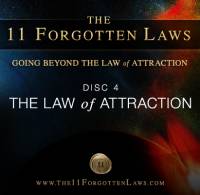|
Musical and Rhythmic Intelligence brings depth and fluidity to life.
Should you have Musical and Rhythmic Intelligence, it would be in a package of other intelligences where you use combinations of intelligences to make your life work beautifully in sound bytes!
THE DIFFERENT INTELLIGENCES – NOT A MORAL OR EMOTIONAL MEASSURE The different intelligences - in Howard Gardner's context - are not a measure or reflection of emotion or social type. Intelligences are socially and emotionally neutral. No type of intelligence is in itself an expression of happiness or sadness; nor an expression of feeling good or good or bad. It does not fit into certain social structures or classes.
In the same way, the multiple intelligences are morally neutral too. No type of intelligence is intrinsically right or wrong. In other words intelligences are amoral, that is, neither moral nor immoral - irrespective of a person's blend of intelligences.
Intelligences are separate to the good or bad purposes to which people apply whatever intelligences they possess and use. Intelligences are not in themselves good or bad.
The types of intelligences that a person possesses are in themselves no indication or reflection - whatsoever - of whether the person is good or bad; happy or sad, right or wrong, rich or poor or belonging to any other social class.
People possess a set of intelligences - not just one type and level of intelligence. This was a primary driver of Gardner's thinking; the fact, or assertion, that intelligence is not a single scalable aspect of a person's style and capability. Historically, and amazingly a perception that still persists among many people and institutions and systems today, intelligence is thought to be measurable on a single scale: a person could be judged - supposedly - to have a high or low or average intelligence; or a person would be considered 'intelligent or 'unintelligent'. Gardener has demonstrated that this notion is ridiculous.
Intelligence is a mixture of several abilities that are all of great value in life. But nobody's good at them all. In life we need people who collectively are good at different things.
A well-balanced world, well-balanced organisations and teams, are necessarily comprised of people who possess different mixtures of intelligences. This gives the group a fuller collective capability than a group of identically able specialists.
Musical and Rhythmic IntelligenceTest your multiple intelligences here MUSICAL AND RHYTHMIC INTELLIGENCE: GENERAL DESCRIPTION
People with musical intelligence love music. They appreciate rhythm and composition. They are gifted with the ability to compose, sing and/or play instrument(s). Able to recognize sounds, tones and rhythm, they have a "good ear" for music.Through music, they are able to convey their emotions. Often, this intelligence is discovered at an early age. The individual differences between those with musical intelligence and those without are apparent from the day a child learns to sing.
People with Musical and Rhythmic intelligence often hum or sing to themselves. They have a great aptitude for music in general, being able to remember melodies after only three or four hearings, and they possess excellent pitch and usually have a good sense of rhythm in varying degrees. Often, when a piece of music is playing, they cannot help but have some part of their bodies in time with it. They have a keen awareness of sounds other than music as well, such as the wind blowing, insects buzzing and chirping, and traffic noise.
Some, who are not particularly gifted with playing or composing ability, make excellent critics, keenly interested in music and understanding it. Through music, they are able to convey their emotions. Often, this intelligence is discovered at an early age. The individual differences between those with musical intelligence and those without are apparent from the day a child learns to sing. Those having this type of intelligence often concentrate better with music playing in the background. Hopefully, in-depth study of this brain area of brain research will continue, and a musical catalog of "brain" tunes can be developed!
MUSICAL AND RHYTHMIC INTELLIGENCE: DESCRIPTION:
• Musical ability, awareness
• Appreciation and use of sound
• Recognition of tonal and rhythmic patterns
• Understands relationship between sound and feeling
• Have good rhythm
• Can easily memorize songs
• Notice and enjoy different sounds
• Often singing, whistling or tapping a song
• Talented with an instrument or singing
• Can tell when a note is off-key
• Often have a song running through their head
• Have an unquenchable passion for music
MUSICAL AND RHYTHMIC INTELLIGENCE RELATED TASKS / ACTIVITIES:
• Perform a musical piece
• Sing a song
• Review a musical work
• Coach someone to play a musical instrument
• Specify mood music for telephone systems and receptions
There is a strong correlation between linguistic and musical intelligence
MUSICAL AND RHYTHMIC INTELLIGENCE: SOCIETAL ROLES:
• Disc jockey • Musician • Instrument maker • Piano tuner • Acoustic engineer • Voice coach • Music therapist • Instrument salesperson • Songwriter • Choral director • Entertainer • Environment noise advisor • Conductor • Singer • Music teacher • Music critic • Composer • Party-planner
Learning /Teaching / Facilitation StrategiesPeople with Musical and Rhythmic Intelligence respond well to: • Taking initiative
• Exploring hidden possibilities
• Relying on intuition
• Self discovery
• Constructing concepts
• Synthesizing concepts
• Spontaneity
• Free flow
• Experimentation
• Playfulness
• Visual display
• Individuality
• Aesthetics
• Being involved
• They like to see and hear patterns
• Group interaction
• Organising & structuring content
• Sequencing content
• Acquiring skills through practice
• Implementing course content
• Listening & sharing ideas
• Integrating experiences with self
• Moving & feeling
• Harmonising with the content
• Emotional involvement
• Experiential opportunities
• Sensory movement
• Music - They can often learn by hearing information set to music or by writing their own music to it.
Compare these strategies with Top right brain as well as Lower Right Brain 
These "music smart" people learn best through sounds, including listening and making sounds such as songs, rhythms, patterns, and other types of auditory expression. They are able to use inductive and deductive reasoning and identify relationships in data. To teach one with musical and rhythmic intelligence, you might use recordings that contain information set to music. Or, in general, use music as a mood-enhancing tool to decrease stress and increase relaxation and concentration. A particular concerto by Mozart has been actually shown to exert a scientifically measurable change in the brains of listeners – a very interesting phenomenon! It increases concentration in some and just gives others a sense of clarity Music can act as a way of capturing feelings, of knowing and understanding feelings, which is an important part of educating in all classrooms, children or adults. Another reason musical and rhythmic intelligence should be valued is that it can be tied to other intelligences. For example, it relates to the logical-mathematical intelligence in that music also contains ratio and regularity, as well as mathematical patterns.
Change your teaching approach: Higher-Order Thinking the Multiple Intelligences Way - by David Lazear Demonstrates how to use new multiple intelligences research to help students learn and includes lesson plans for elementary, middle, and high school classes with specific techniques for promoting understanding by utilizing all of a student's abilities. Order Now - Higher-Order Thinking the Multiple Intelligence way
Consider the link into Mathematical logical intelligence Technology Tools to enhance and incorporate Musical and Rhythmic Intelligence:
• Video and audio recorders
• musical instruments
• Sound and music files
• Music clips
• Music generation software
• Animation
• Music composition software
• DVDs and CD-audios
• Interactive books with audio elements
• Audio notation in word processors
• Music sharing sites
BUSINESS ACTIVITIES• Measure precisely
• See the ‘big picture’
• Recognise new possibilities
• Tolerate ambiguity
• Read signs of coming change
• Integrate ideas and concepts
• Synthesize unlike elements into a new whole
• Solve problems intuitively
• Pick up non-verbal cues of interpersonal stress
• Relate to others in empathetic ways
His fingers are somewhere in a musical world!
• Understand emotional elements
• Good at sequencing a presentation
• See and hear patterns
• Video and audio recorders - digitize singing, musical instruments
• Creating DVDs and CD-audios
• Introduce sound elements into presentations with flair
Musical and Rhythmic Intelligence is part of your whole thinking skills package and together with hemispheric intelligences are in orchestra with one another. They definately make the most melodious music when played together in harmony. Since you have them all - make the most of most of them!
Discover how the brain works holistically Return from Musical and Rhythmic Intelligence to Consciousness-Evolving
|



















